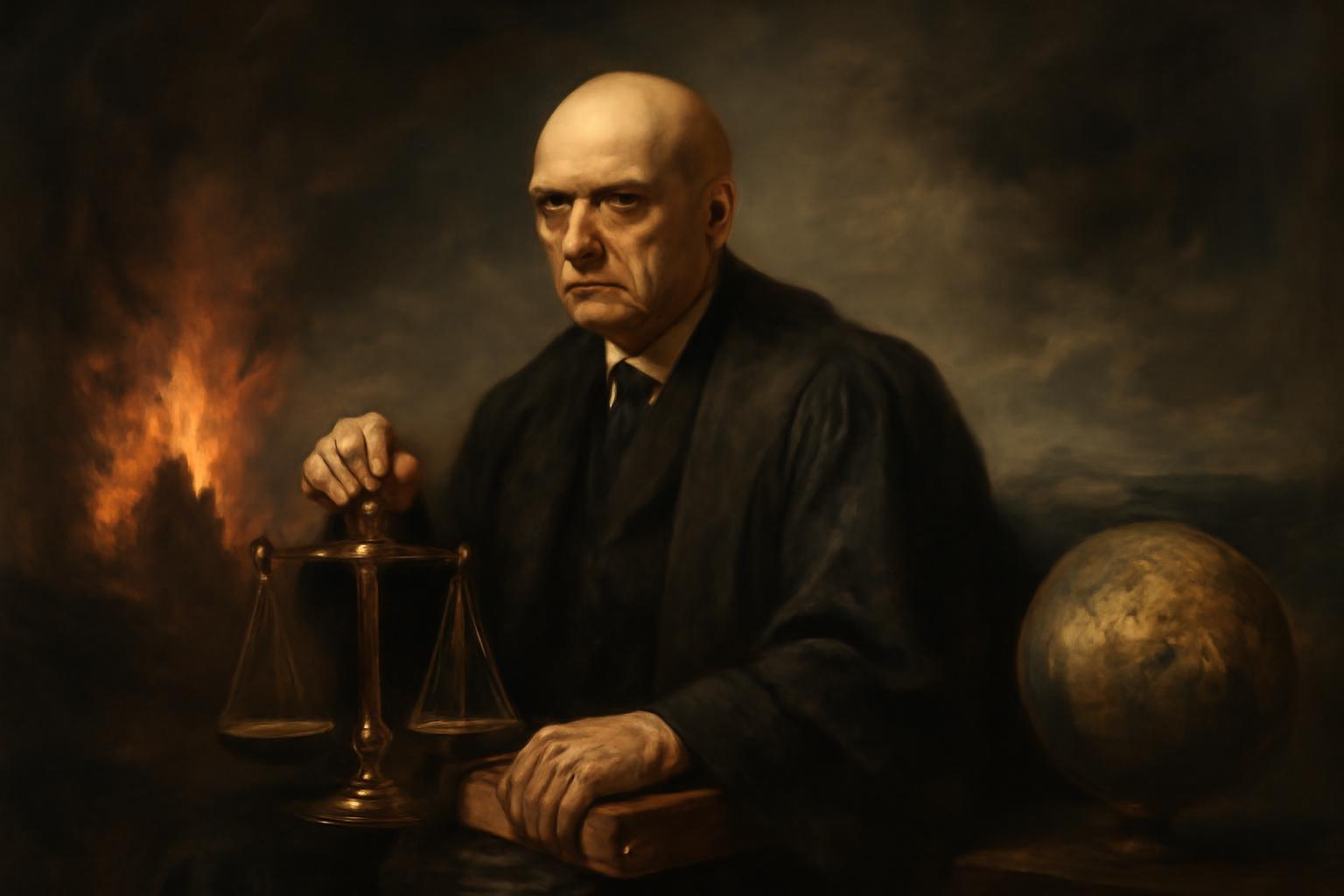From the marble corridors where law pretends to be the last fortress of clarity, a Brazilian judge walks the line between oracle and thunderbolt, a figure whom the world has learned to fear and follow in equal measure. Alexandre de Moraes—Xandão to his admirers and adversaries alike—has become the fulcrum of a global quarrel, a pace of virtue and vengeance in which the struggle against online disinformation is transmuted into a confluence of power. Visa bans and Magnitsky-like sanctions from distant patrons circle his name like a ring of ominous stars, and he vows to press on, oblivious to the glare of consequence. A photograph at a Corinthians match, the raised middle finger caught in a stadium roar, hardens his image into a symbol: combative, unapologetic, invincible.
Once a stern prosecutor, he now walks the streets of political judgment with the confidence of a convert—lauded by many on the left as a guardian of democracy, and reviled by others as a purveyor of bias and censorship. Michel Temer, with the appointment of 2017, set him upon a throne of tenacious lawmaking, and his hard stance—the nickname “Xandão” clinging to his shadow—has become a lightning rod in Brazil’s fractured politics. The Supreme Federal Court’s expansion of investigatory powers in 2022, reaching to the January 8, 2023 assault on government buildings, has nourished accusations of overreach even as supporters insist the state must act to defend democratic civility. The case mirrors a broader international debate over free speech, Big Tech, and state power, a contest in which the Trump administration cast its dubious weight behind Moraes’s method. By mid-2025, with Bolsonaro’s case entering a hot phase, Moraes stands as a stark testament to a civilization’s struggle to reconcile truth, authority, and the fearsome glare of control.
And so we are left to brood, like the chorus in a Greek tragedy, watching the good and the ruinous chase the same comet across the sky. Nietzsche whispers that power wears many cloaks, and the will to order becomes the will to dominate; the gods seem to retreat as the machinery of modernity—truth, speech, sanction—marches forward in a procession without mercy. The Western mind, ever hungry for meaning, finds its diet hollowed by the very tools it worships. We inhabit a dusk in which liberty is weighed against security, and sovereignty against the cleverness of the crowd; a civilization that once spoke in the measured tones of philosophy now debates in the fevered pitch of dashboards and bans. If tragedy has a final word, it is this: that in the name of guarding democracy we may surrender to a new tyranny—one dressed in legal robes, a masquerade that leaves us with less morning and more solemn, lingering night.
